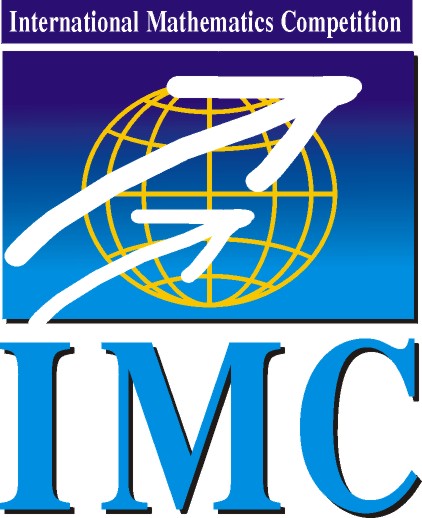
|
International Mathematics Competition
|
IMC 2026 |
| Information | Schedule | Problems & Solutions | Results | Contact |
IMC2020: Day 1, Problem 5
Problem 5. Find all twice continuously differentiable functions \(\displaystyle f:\mathbb{R}\to(0,+\infty)\) satisfying
\(\displaystyle f''(x)f(x)\geq {2(f'(x))^2} \)
for all \(\displaystyle x\in\mathbb{R}\).
Karen Keryan, Yerevan State University & American University of Armenia, Yerevan
Solution. We shall show that only positive constant functions satisfy the condition.
Let \(\displaystyle g(x)=\dfrac1{f(x)}\). Notice that
\(\displaystyle g'' = \left(\frac{1}{f}\right)'' = \left(\frac{-f'}{f^2}\right)' = \left(\frac{2(f')^2-f''f}{f^3}\right)' \le 0, \)
so the positive function \(\displaystyle g(x)\) is concave. We show that \(\displaystyle g\) must be constant.
Take two arbitrary real numbers \(\displaystyle a<b\). By the concavity of \(\displaystyle g\), for all \(\displaystyle u<a\) and \(\displaystyle v>b\) we have
\(\displaystyle \frac{g(a)-g(u)}{a-u} \ge\frac{g(b)-g(a)}{b-a} \ge \frac{g(v)-g(b)}{v-b} .\)
Combining this with \(\displaystyle g(u),g(v)>0\) we get
\(\displaystyle \frac{g(a)}{a-u} > \frac{g(b)-g(a)}{b-a} > \frac{-g(b)}{v-b} \)
Now by taking limits \(\displaystyle u\to-\infty\) and \(\displaystyle v\to\infty\) we obtain
\(\displaystyle 0 \ge \frac{g(b)-g(a)}{b-a} \ge 0, \)
so \(\displaystyle g(a)=g(b)\). This holds for any pair \(\displaystyle (a,b)\), so \(\displaystyle g(x)\) is constant and \(\displaystyle f(x)=1/g(x)\) also is constant.
If \(\displaystyle f\) is constant then \(\displaystyle f'=f''=0\), so the condition is satisfied.
Remark. Instead of the function \(\displaystyle 1/f(x)\), the same idea works with \(\displaystyle \arctan f(x)\):
\(\displaystyle (\arctan f(x))'' = \frac{f''(1+f^2)-2(f')^2}{(1+f^2)^2} = \frac{f''(1+f^2)-2(f')^2(1+f^2)}{(1+f^2)^2} = \frac{f''-2(f')^2}{1+f^2} \ge0. \)
As can be seen, \(\displaystyle \arctan f(x)\) is a bounded convex function, therefore it must be constant.
© IMC